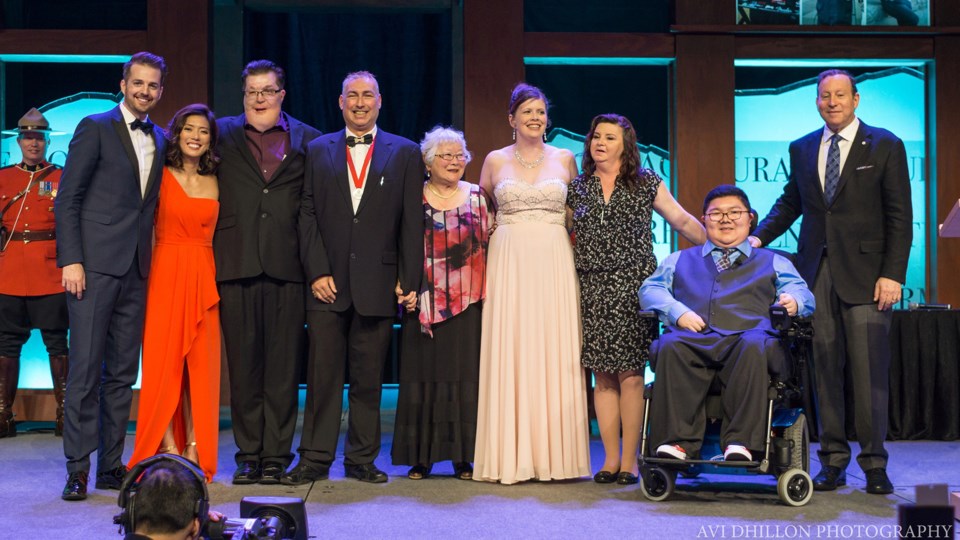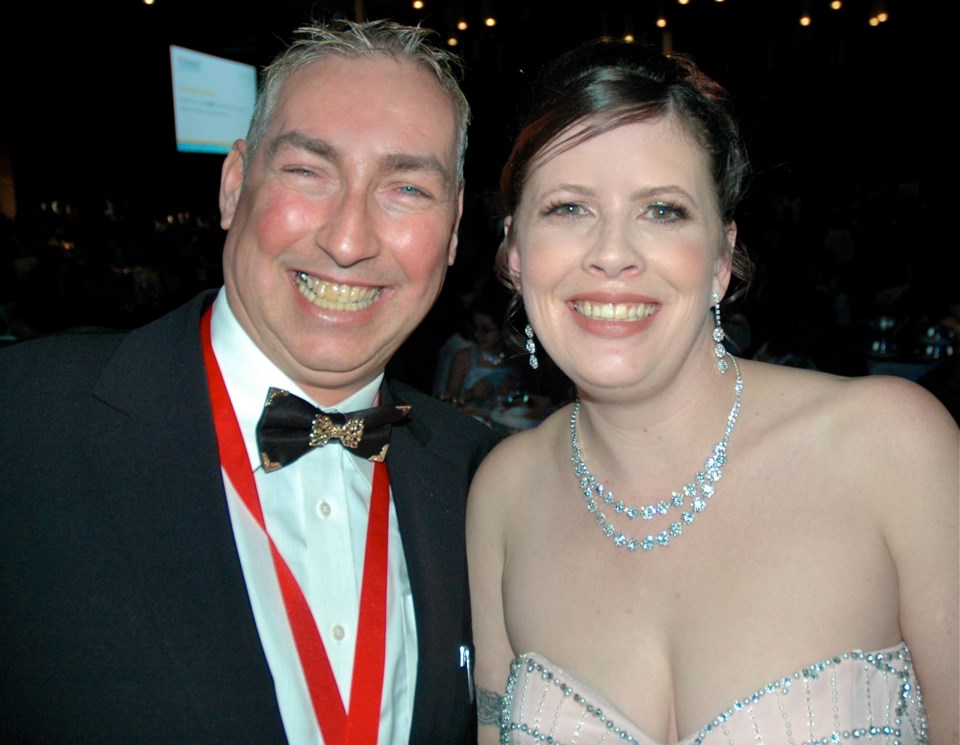Rachel Fehr’s Courage to Come Back award has an honoured spot at the top of her résume´.
It might also be the thing that’s preventing her from getting a job.
The award was in the mental health category, something that was highlighted in the media coverage about the way she battled homelessness, addiction, an abusive relationship, misdiagnoses and the child custody system to build a happy life for herself and two children.
Winning the award is one of Fehr’s proudest accomplishments. However, she believes that when a potential employer Googles her name, the mention of a mental illness sets off do-not-hire bells.
“This year I’ve had 57 job interviews since the awards and, in 56 of them, they asked me directly about my mental health,” she told the Courier, which profiled her in a series about the awards. “Here I’ve won one of the most prestigious awards in the province and I feel like I’m being punished for it. Everyone’s full of ‘Congratulations!’ and ‘Good for you!’ and ‘You’re an inspiration!’ until the minute I ask for a job.
“It’s the stigma of mental health.”

Fehr was diagnosed and treated for borderline personality disorder, which covers a range of behaviours. The Canadian Mental Health Association says it “affects the way to relate to other people and the way you relate to yourself.” Abuse, neglect, loss and other hurtful events — all of which Fehr suffered from — increase your risk of developing BPD.
Fehr was successfully treated in a dialectical behaviour therapy program at Surrey Memorial Hospital. She believes people are confusing BPD with split personality disorder. Instead, she likens it to post-traumatic stress disorder caused by personal traumas. In job interviews she stresses that she won the award for overcoming the challenges it presented and that her treatment was successful.
Laura Track is a lawyer with the Community Legal Assistance Society. In Ontario, she says, it would be illegal for an employer the type of questions that Fehr says she’s been asked. “Here in B.C. it’s not expressly prohibited but it may be discriminatory depending on the context.
“It’s permissible to ask about your ability to do your job; what’s not allowed are questions that could be used to discriminate against you if they don’t relate to the requirement of the job.”
Track says applicants can politely ask what the question has to do with the job they’re applying for. As well, “try to address what the employer really wants to know without disclosing the information you might not want the employer to know.”
She uses the example of a woman who’s asked how many children she has. “Asking a question about family status is potentially discriminating,” Track says. “The subtext is ‘Are you going to be reliable? Are you going to be late or need time off?’”
Instead of answering the question, you can reply, “In my past positions I had an exemplary record of attendance.”
Track also suggests that, in Fehr’s case, she can use “the challenges [she’s overcome] to describe the way in which she’s an asset and bring it around to highlighting positive aspects of her application.”
Darrell Burnham, the CEO of Coast Mental Health, says people with mental illness might also consider practising interview situations or finding a mentor who will coach an applicant in the way Track suggests.
“If you get in the door [to an interview], that’s fantastic,” Burnham says. “Then the question is how to get the job. That’s harder for anyone and it is so easy to passively discriminate.”
The B.C. Human Rights Code says an employer cannot discriminate against a job applicant, or an employee, because of mental illness. However, the onus is on the complainant to prove that it was the reason for not getting the job.
“There’s a real power imbalance,” Track says. Employers can say a person didn’t get the job because there was someone with more experience or qualifications. “Unless you can prove you’re the most qualified person and that the person they hired had fewer skills, it’s difficult to make the case.”

Fehr says that when an interview starts off, “the first couple of questions are usually about my work experience, skills and attributes. Then every question is about my mental health. ‘I see you won the Courage to Come Back award in the mental health category. What is your diagnosis? What are the symptoms? How does it affect you?”
In the past, she says, she never had to hand out more than five résumés before getting her job. The only job she got since the award was washing cars but she had to leave when she contracted pneumonia and could no longer outside in the rain. She also runs a jujitsu program for young people in Surrey, where she lives.
In January she plans to go to college part-time to become a community support worker. “I want to work in either youth homes or women’s shelters,” places where, she says, standing up for what’s right is an attribute.
Fehr is in no way tempted to remove the award from her résumé or try to get it expunged from the internet. She contacted the Courier because she’s angry at being discriminated against.
“I’ve faced far greater obstacles in my life and I can beat this, too,” she says. “I told my kids, ‘How can I expect my children to stand up for what’s right if I turn tail and hide?’ It would make me a hypocrite.”



